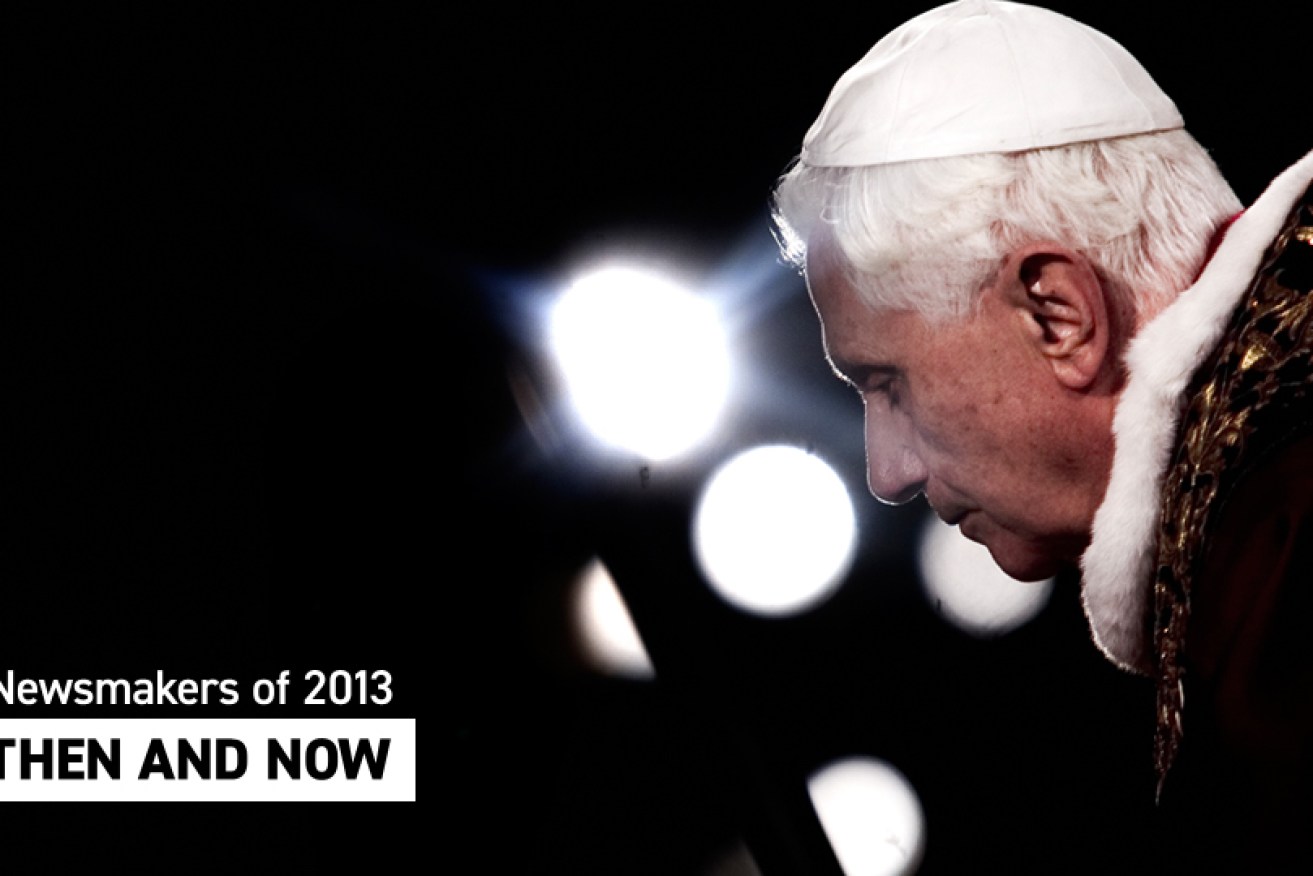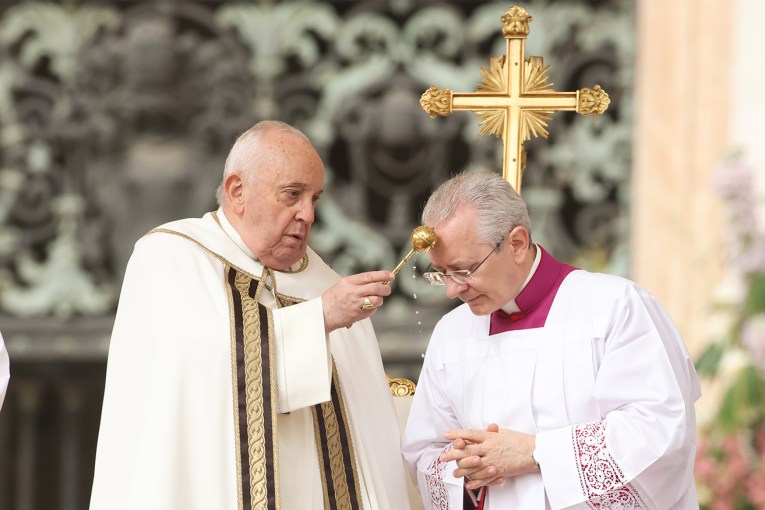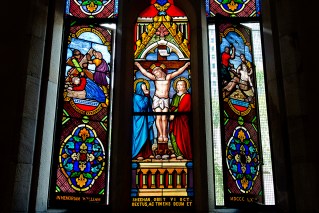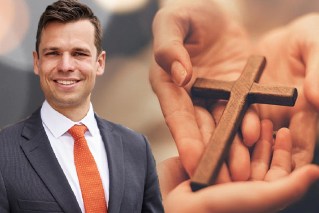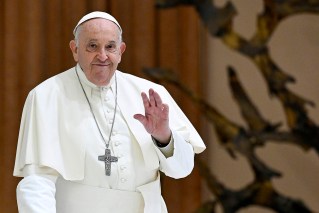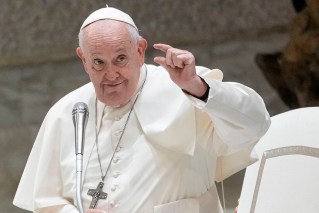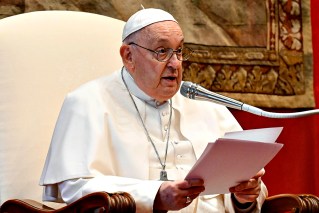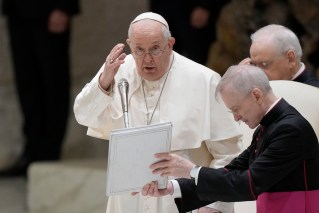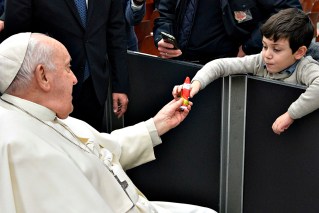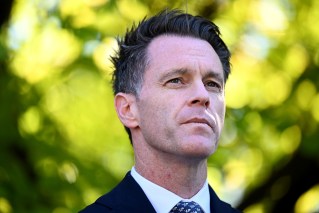 To celebrate its fifth birthday, The New Daily is looking back at those who made news in our first year. Pope Benedict is the fourth of our Newsmakers: Then and Now
To celebrate its fifth birthday, The New Daily is looking back at those who made news in our first year. Pope Benedict is the fourth of our Newsmakers: Then and Now
In February 2013, Pope Benedict XVI became the fourth pope in the history of the church to retire more or less peacefully from the job – although at least two of those were edged out.
As it often goes with popes making sudden exits from the job, a certain mystery and taint of conspiracy surrounded Benedict’s retirement. The question remains: Was he forced out too?
In September, The Washington Post noted that rumours “have lingered about … the possibility of blackmail or pressure relating to scandals within the Vatican bureaucracy”.
Conspiracies too tangled to mention
As The Atlantic two years ago trilled: “The circumstances surrounding Benedict’s decision to step down have titillated scholars and the journalists alike, especially given the fact his resignation came not long after the ‘Vatileaks’ scandal.”
This was the release by Benedict’s butler of internal Vatican memos that apparently revealed how Benedict’s efforts to reform the church, such as to provide transparency on the global sex abuse scandal and the management of the Vatican bank, were undercut by internal politics.
If you want a mind-boggling but not sensational account of Vatileaks and the attendant “four-stage scandal” by US theological scholar, Dr Taylor Marshall, check this out:
For his part, Benedict, who formerly went by the name Joseph Ratzinger, but was also known as God’s Rottweiler – and the Panzer cardinal, being the first German pope in 1000 years – said he retired at the age of 86 because of failing heath and because he feared being unable to fulfil his duties.
In fact, he said God told him to step down during a “mystical experience”.
Hints of recovery?
Four years later, though, he declared himself “in perfect metal and spiritual health” feeding bizarre rumours he could stage a comeback as the gentler, more forgiving and embracing tones of his successor, Pope Francis, had started to increasingly grate on the hardliners who, for example, regard homosexuality as an abomination.
Benedict, who was more a cold intellectual than a pope of the people, always suffered from an almost creepy aura. In 1981, he earned the Rottweiler tag after taking over the Congregation for the Doctrine of the Faith, the powerful Vatican department responsible for enforcing doctrinal orthodoxy, and the successor to the Inquisition – that body which put heretics to the flame.
His reputation took on an even more sinister tone when in 1996 he confessed he’d been forced to join the Hitler youth.
Hence, as The Washington Post noted in its recent report, “Benedict was not embraced by Catholics worldwide during his eight-year pontificate. But he won admiration among those who respected the depth of his academic work and his conviction that church teachings shouldn’t bend with the times.”
Still, the papacy isn’t a popularity contest. And while Benedict was obviously battling with the ravages of age, he looked in better shape than his beloved predecessor.
Pope John Paul II’s health went into decline through the 1990s, was diagnosed with Parkinson’s disease in 2001, was barely holding his head up or keeping his eyes open in his later public appearances, but held on to the job until he finally succumbed in 2005.
The prevalence of doubts about Benedict’s claims of retiring because of poor health has remained a bugbear for the Vatican.
In April, Rome Reports, a purportedly independent television production company that covers daily life in the Vatican and the pope’s formal duties, released a documentary Benedict XVI – In Honour of the Truth. The serious tone of the documentary suggests a devastating revelation is about to be made – but really it’s just a bunch of talking about Benedict’s struggles to get around the garden on his walking frame.
Still, for 2000 years, being pope has been virtually always a job for life. The reason being: the pope is meant to be infallible, and therefore to admit frailty and go into retirement opens a pathway for insurrection.
The Vatican becoming another Canberra
Benedict’s retirement opens a loophole, and sets the papacy on course to become as stable an office as that of the Australian prime minister.
While 11 popes in history are recorded as renouncing their office, most of those were driven out or banished into exile. More often, popes only made sudden exits because they were killed.
Poor old Pope Clement I was thrown into the sea with an anchor around his neck. Pope John I was imprisoned and starved to death. John VIII is said to have been poisoned and then clubbed to death. John X: smothered with a pillow. John XII was allegedly murdered by a jealous husband who had discovered the pope in bed with his wife.
Something like 40 popes are said to have met violent deaths. And it’s not all ancient history. There are theories that Pope John Paul I was murdered 33 days into the job in 1978 – because he’d been set to expose corruption in the Vatican Bank.
So maybe Benedict XVI got off lightly.
Officially, he lives a quiet life in a monastery with a view of the gardens in the Vatican, and has pledged to make his monastic life one of prayer and quiet contemplation. He writes plenty of letters and articles, all of them odes to baby Jesus.
In August, he published a controversial article that led to him being labelled anti-Semitic. And no wonder: He had argued that only the Christian interpretation of the Old Testament was valid – dismissing the legitimacy of the Jewish people who champion the old book as their own. This is not the behaviour of someone going gently into that good night.
It’s also been pondered why, instead of reverting to the name Ratzinger, he has kept the title of Pope Emeritus (as professors do when continuing to hold an honorary position in universities) and why he continues to wear the white papal vestments. Again, this fuels speculation he’s ready and able for a comeback.
If it’s going to happen, it better happen soon.
Early this year he said he was “on a pilgrimage toward Home” – meaning Heaven. He is, after all, 91.
On the other hand, Malaysia’s prime minister Mahathir Mohamad is a spry 93. So perhaps a creaky coup isn’t out of the question.

